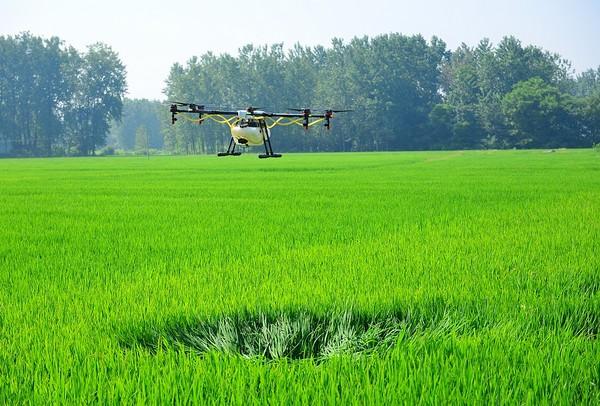Modern agriculture is gradually bidding farewell to the model of ‘facing the loess and facing the sky’ and achieving remote and intelligent farming. Sun Guoliang said that smart agriculture is mainly reflected in three aspects: agricultural production perception, intelligent analysis systems, and remote control. By combining the most advanced scientific and artificial intelligence technologies, it improves efficiency, reduces costs, improves quality, and achieves the goal of sustainable development.
How can smart agriculture provide effective supervision for farmers’ field management and planting processes in practical application scenarios? Shan Yi provided an answer based on his own experience as a case study, In the planting stage, by providing a series of digital new agricultural tools, such as growth prediction, identification of planting anomalies, yield prediction, meteorological services, variable plant protection, and water and fertilizer technology, we can cultivate good quality for consumers. In the product sales stage, by establishing an integrated platform for production, traceability, and circulation, we can connect with customers related to agricultural processing and sales, lock in sales channels for farmers in advance, and assist in appropriate premiums. In terms of industry Multiple AI models have been provided to establish a monitoring system for the entire grain harvesting and storage process, enhancing and optimizing the industrial chain
In terms of promoting rural revitalization through industrial revitalization, smart agriculture has enormous development space, “said Xin Beijun.” A strong country must first strengthen agriculture. With the acceleration of the digitization process of agriculture and rural areas, the rural digital economy will be rapidly developed. By combining with the entire industrial chain, we aim to create a “blockchain+agricultural products” platform, achieving full process product and quality traceability from the production end to the circulation end, and finally to the market end. Improve the quality and price of agricultural products, ultimately benefiting farmers.
Is smart agriculture just a matter of agriculture? Whether from the perspective of assisting rural revitalization or stabilizing new industrial trends, all sectors of society are currently paying attention to the development of smart agriculture. Expanding policy support, expanding technology applications in new scenarios, and focusing funds on new industrial tracks, the future of smart agriculture is foreseeable.
Sun Guoliang believes that while accelerating the Digital transformation of agriculture, we should strengthen brand building, increase the radiation of unique brand influence, broaden the “circle of friends” of agricultural production and operation, and use channel resources to make brand effects. “We need to build a smart agricultural brain, build a computing power ‘New Infrastructure’, and all ecological partners work together to enable rural revitalization with science and technology, stimulate the vitality of smart agriculture, and create a path of sustainable agricultural development with Chinese characteristics.”
The construction of talent teams is also a key part of smart agriculture. In this regard, Xin Beijun, taking the integration of China Telecom’s village to village digital rural comprehensive information service cloud platform and China Agricultural University’s “Science and Technology Academy” to enable rural industry revitalization as an example, proposed to cultivate graduate students who understand both agriculture and informatization, and take rural areas as classrooms, The development of smart agriculture is a living water that requires the support of the entire industry chain and will also generate many opportunities for socialized services. Efforts should be made to ‘cultivate’, ‘attract’, and ‘serve’, vigorously cultivate local talents, and cultivate human resource advantages. At the same time, foreign talents should be actively introduced to gather innovative development momentum.
At the recently held National Ecological Civilization Conference, the issue of ecological environment protection once again became a public issue. Shan Yi suggested that the industry and the public should enhance their awareness of environmental and land protection, establish a research, production, and implementation system, and work together to promote the empowerment of smart agriculture in environmental and land protection.







Please sign in to comment
register